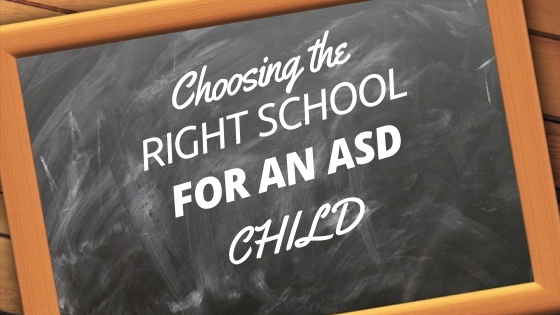Some mainstream schools are autism-friendly, some special schools get the basics wrong, so you’ll need to check things out for yourself. It’s difficult establishing the school’s culture from a single visit. The attitude of the head teacher is probably the biggest factor. You need a school that is going to be open-minded when things aren’t working and work with you to find a solution, rather than one where the staff close ranks or one that doesn’t involve you in decisions. This can be hard to gauge before you start school, of course, but asking some direct questions might help.
Good questions to ask your child’s prospective mainstream school
- What autism training have the teaching and support staff received, including the head teacher and governors?
- Are there structured activities during playtime?
- What adjustments has the school made for autistic children in the past year’s intake?
- What communication do they think is reasonable between parents and school?
- What is their behavioural policy and how flexible is it for autistic students?
- Is the SENCO part of the senior leadership team?
Questions for a special school
- What is the staff–pupil ratio?
- How much time do the children get individually with the teacher?
- What is the curriculum and focus of the work?
- What is the peer group of your child’s year likely to be?
- Which interventions are used, and are they one-to-one or in a group?
The different types of schools out there
Mainstream state schools
The ‘normal’ school to which non-SEN kids go.
Pros:
- The school is likely to be close
- The opportunity to access a full range of qualifications, such as GCSEs and A-levels.
- Some mainstream schools try hard to differentiate the curriculum and make reasonable adjustments.
Cons:
- Some schools can be inflexible about accommodating the needs of autistic children even if it involves no extra cost.
- Teachers often lack knowledge about autism, which may lead them not to believe parents, which leads parents feeling isolated.
- Pupils are largely expected to fit in with existing routines and structures.
- Some children who need lots of one-to-one support to cope with a mainstream school can become overreliant on adult help.
- If a mainstream school doesn’t support its autistic pupils properly, that can create or exacerbate mental health problems.

Private or independent mainstream schools
Pros:
- Potentially smaller class sizes; the teacher has more chance to get to know your child.
- Some autistic children like the more old-fashioned structured school environment, with explicit and firmly policed boundaries.
- Bright kids get the chance to be stretched academically, though the emphasis can be on academic success and not on the child’s emotional and social wellbeing.
Cons:
- As these schools don’t have to abide by the SEN Code of Practise, what provision is offered varies greatly. They have no obligation to accept pupils with SEN.
- A small number of parents do get local authorities to pay to send their child to a private school, but usually these are extreme situations where a child has had a terrible time elsewhere.
- It’s unlikely an LA will pay for support – say a TA or SALT – if a parent has elected to send their child to a private school.
- While some private schools allow parents to pay for the TA themselves, some charge more for SEN pupils. Some run a mile as soon as SEN is mentioned.
- Many private schools lack awareness of autism.
- There can be issues around parents who are unenlightened (to put it nicely) and paying high fees who have concerns about disruptive behaviour.
Mainstream schools with autism units
An autism unit – effectively a small school – attached to a mainstream school can be a good compromise.
Pros:
- Specialist teachers, smaller class sizes.
- Some children spend the morning in the unit and afternoon in the mainstream school. Others stay in the unit full-time then can integrate into the mainstream school if appropriate.
- Your child will have access to other autistic pupils, meaning they feel less different.
Cons:
- The idea is that staff in the mainstream school benefit from knowledge shared by teachers in the specialist wing of the school, but sometimes the former aren’t given time to do this.
- Children can get stuck in the autism unit and not be integrated into the mainstream school when parents feel they are ready.
- Some parents find the mainstream school, despite its proximity to the specialist unit, is not as good on inclusion as they had expected.
Special schools
Schools specifically for children with SEN. Some specialise in autism.
Pros:
- Smaller class sizes, trained staff, an autism-friendly environment and a flexible approach to learning.
- There will be more SALT and OT.
- Some kids who have had an awful time at a mainstream school can flourish
Cons:
- Specialist schools can be far from the child’s home, and if the LA is paying for the transport, cost-cutting exercises can mean drivers change frequently.
- It is unlikely that they will do GCSEs at a special school; instead, they will pursue independent living qualifications, focusing on personal and social skills. Some special schools now offer ‘dual placements’, which means some lessons or exams are carried out at a local mainstream school with support.
- There are more boys in special schools, so girls may struggle to make female friendships.
Autism: How To Raise a Happy Autistic Child by Jessie Hewitson is published by Orion Spring in trade paperback on 22 March 2018
Check out Stay At Home Parent to SEN Children


Absolutely fantastic tips! This post will certainly help parents find the right school for their child’s needs! Sim x
This looks like a very useful post. I imagine it’s difficult for some people to know the right questions to ask so i’m Sure they would find this a useful aide memoire
This is so helpful for those who are undecided about what is best for their child. It must be an incredibly difficult decision for parents to make.
It must be such a minefield working out the right thing to do as there’s plenty of pros and cons to all the different schools x
I literally wouldn’t know where to start figuring out this stuff. My child has some additional needs, and this post has given me some ideas for questions I need to be asking
My niece has learning difficulties and was originally in a mainstream school but the support that she got wasn’t the best. She is now in a school that specialises in all kinds of special needs (I hope that’s not considered an offensive term) and is flourishing since she is getting the extra help and attention that she needs. Great post 🙂
What a comprehensive and informative read and I’m sure for those that need it this post will be really really helpful. It must be a very difficult decision but i bet this list of pros and cons will help parents make the best decision xx
I thought that mainstream school were having more facilities and people to help these days? It seems like a difficult choice to make looking at your list. I don’t think GCSEs are that important and other qualifications are as interesting and valuable anyway so I would not worry about this one
These are brilliant tips to remember when looking into schools. It can be so daunting at first, but asking the right questions really helps in the long run.
These are all things I wouldn’t have even thought of. Friends have a child who is in the process of being assessed for ASD and posts like this are so helpful when I’m trying to support them, so thank you for being so open and honest.
I am sure this post will help lots of people facing this decision it contains so much information. It must be difficult making the right decision and one that as a parent you are happy with.
This a great post and highlights some great things to lookout for. What a great resource for parents facing this decision. x